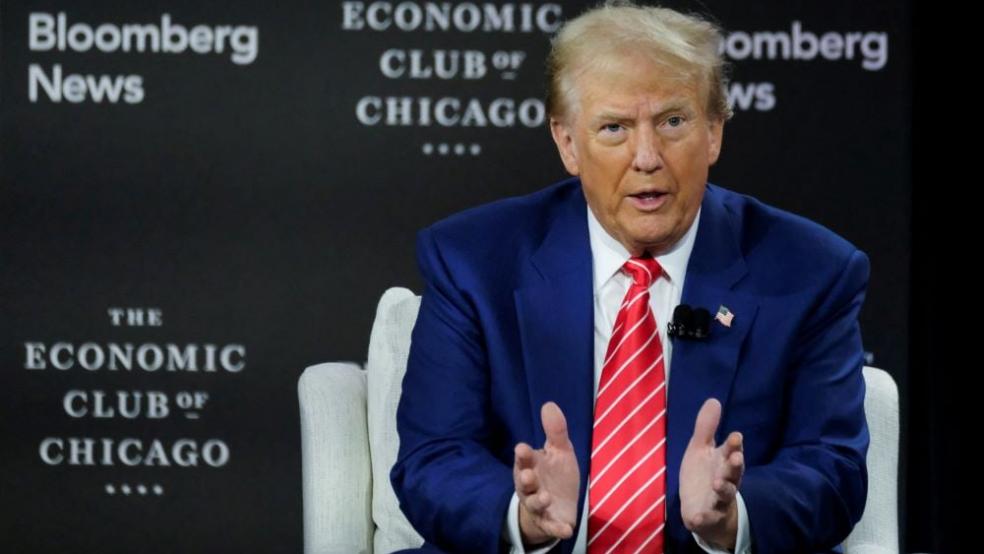Republicans are reportedly scrambling to find ways to enact President-elect Donald Trump’s proposals for an extensive array of tax cuts when he returns to power, with an eye on giving the new president a major legislative victory in his first 100 days.
During the campaign, Trump pledged a variety of new and unusual cuts, including the elimination of taxes on tips, overtime pay and Social Security benefits, and the list seemed to grow longer by the day. The new administration will also have to address the tax cuts from Trump’s 2017 tax law that are scheduled to expire at the end of 2025, as well as a potential reduction in the corporate tax rate – all against a backdrop of soaring budget deficits and rising national debt.
The Washington Post’s Jacob Bogage reports that the attitude among Republican leaders toward the complex tax situation is “just go,” which suggests they plan to do as much as possible as quickly as possible, even if details are still anything but clear. “Rip the Band-Aid and run and just plow it through,” one conservative lobbyist told Bogage.
Idaho’s Mike Crapo, who will lead the Finance committee in the Republican-controlled Senate, indicated earlier this year that he is interested in major changes in tax policy. “Everything is in play,” he said over the summer.
Rep. Jason Smith, the Missouri Republican who chairs the tax-writing House Ways and Means Committee – a position he is expected to maintain if the GOP retains its hold on the House – said earlier this fall that the process will not be easy. “There’s just going to have to be a lot of dials adjusted. I have to thread the needle to pass a bill,” he said, per the Post. “I just want to make sure it’s the optimum tax rate and what that is. But we also have to make sure we’re fiscally smart.”
One key question is how quickly policymakers can move. Liam Donovan, a Republican strategist, told The New York Times that lawmakers have a massive job ahead of them. “Nobody wants to acknowledge at all the sheer enormity of the challenge,” he said. “There’s a reckoning coming.”
A mighty price tag: Although much depends on the details of the nascent legislation, it’s a good bet that the price tag will be substantial. The fiscal hawks at the Committee for a Responsible Federal Budget have estimated that Trump’s proposals – including extending the 2017 tax cuts, lowering the corporate tax rate from 21% to 15%, and ending taxes on tips, overtime and Social Security – would cost upwards of $9 trillion over 10 years.
Republican policymakers will likely look for ways to reduce the cost, at least on paper. One option might be to use revenues from Trump’s proposed tariffs to offset the cost of tax cuts, though that could be tricky since there is little agreement on how those tariffs might play out.
In September, Crapo said lawmakers might consider avoiding an offset for the roughly $4 trillion cost of extending the 2017 tax cuts, simply by changing the way the extension is treated in a future reconciliation bill, shifting from a “current law” basis to a “current policy” basis. “I do not believe that pro-growth tax policy needs to be offset in a very rigid way,” he said.
Another option would be to limit the scope of Trump’s proposed cuts. For example, the tax exemption for Social Security benefits could be limited via an income threshold. John Paulson, a billionaire hedge fund manager who has been advising Trump, told the Times that such limits have been discussed by the president-elect’s team. “You need to keep the concept of what he wants to achieve, and put guardrails around it so you achieve the goals, but lower the revenue impact,” he said. “And I have discussed that with members of his economic team, and they’re all cognizant of that.”
But according to the Post’s Bogage, the most likely source of offsetting revenues is a claw-back of some of the climate change-focused spending included in the Inflation Reduction Act, a move that could reduce spending by as much as $500 billion and “satisfy Republican objectives to unwind much of President Joe Biden’s legacy.”




